Joe Biden’s warning to Houthi rebels: we’ll strike you again
Australia is under pressure to increase its military commitments in the Middle East after Joe Biden ordered US-British airstrikes against Iran-backed Houthi rebels in Yemen.
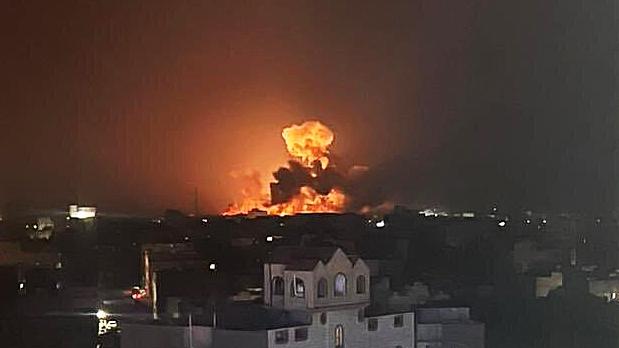
Australia is under pressure to increase its military commitments in the Middle East after Joe Biden ordered US-British airstrikes against Iran-backed Houthi rebels in Yemen and warned he would authorise more strikes to “protect our people” and keep global shipping lanes open.
US and British forces, supported by Australian, Bahraini, Canadian and Dutch defence personnel, launched more than a dozen missile strikes against Houthi rebels on Friday in a dramatic military escalation that threatens a third major international conflict.
Amid fears that Iran-backed proxy groups in Yemen, Lebanon, Iraq and Syria could launch retaliatory attacks, the Coalition and security experts urged Anthony Albanese to ramp up Australia’s presence in the region.
The strikes, which deployed anti-ship ballistic missiles for the first time, targeted Houthi radar, missile and drone capabilities to halt attacks on international ships in the Red Sea. Five people were killed in the strikes, according to a Houthi military spokesman.
Foreign Affairs Minister Penny Wong will fly to the Middle East on Monday, as oil prices spiked by more than 2 per cent after the Yemen strikes and with pressure building to step up support for Australia’s AUKUS partners.
Senator Wong is expected to make multiple stops during her first Middle East visit since the 2022 election and hold meetings with officials in Israel and Palestinian Authority leaders in the West Bank.
Mr Biden said he ordered the strikes, which involved US and British fighter jets and Tomahawk missiles, in response to 27 Houthi attacks on international commercial ships that have affected more than 50 countries.
“These targeted strikes are a clear message that the United States and our partners will not tolerate attacks on our personnel or allow hostile actors to imperil freedom of navigation in one of the world’s most critical commercial routes,” the US President said.
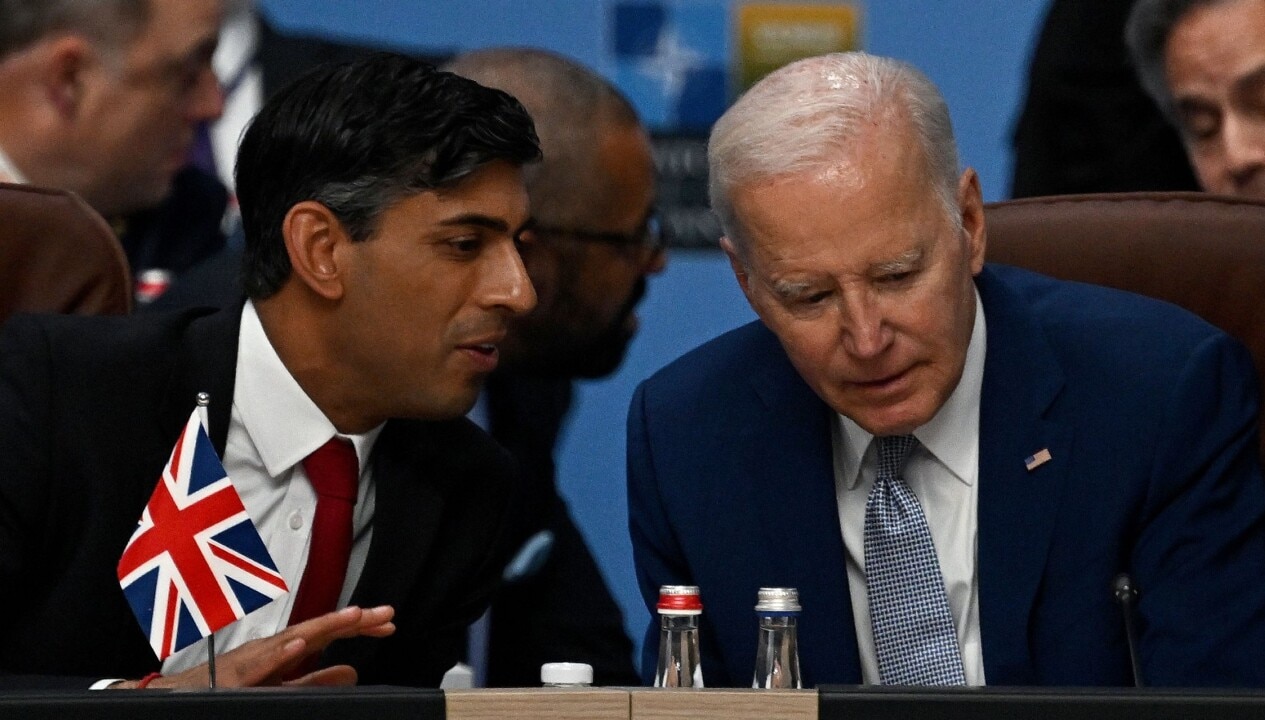
“I will not hesitate to direct further measures to protect our people and the free flow of international commerce as necessary.”
An undisclosed number of Australian Defence Force personnel engaged in non-operational roles supporting the strikes, which were ordered after the UN Security Council passed a resolution demanding an end to Houthi attacks.
In a social media post, Mr Albanese said “the continued Houthi attacks on shipping in the Red Sea are unacceptable”.
“Australia alongside other countries has supported the United States and United Kingdom to conduct strikes to deal with this threat to global rules and commercial shipping,” the Prime Minister said.
Defence Minister Richard Marles, who returned from leave early after being briefed on the US-led operation, said “freedom of navigation and the UN Convention on the Law of the Sea are utterly central to Australia’s national interest”.
“Australia must stand up for the rules-based order. Australia must stand up for freedom of navigation. When you consider who we are: an island trading nation, much of our prosperity is based on sea lines of communication, is based on the freedom of trade on the high seas,” Mr Marles said.
Mr Albanese was last month forced to defend the government’s decision to not send a warship to the Middle East despite an official request from US officials. Instead, up to six ADF officers were deployed to Bahrain as part of the Combined Maritime Forces in addition to five already in the country.
Opposition defence spokesman Andrew Hastie on Friday accused the Prime Minister of continuing to “put at risk important alliances with the US and the UK by failing to provide a maritime contribution in the Red Sea”.
“While our AUKUS partners defend vital trade routes against Houthi rebels, Australia is sitting on the sidelines, letting our allies do the heavy lifting,” he said.
“The Prime Minister’s weak leadership increasingly puts us at risk of being known as a fair-weather friend by both our allies and adversaries.”
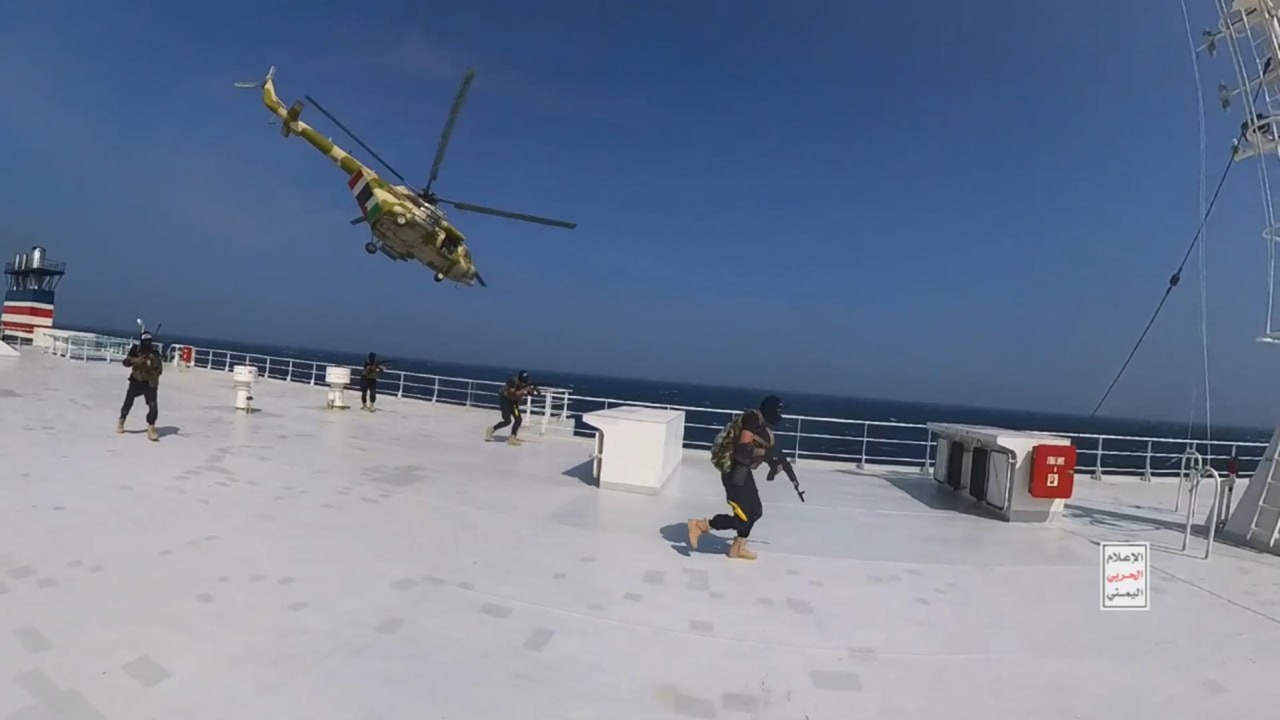
US Studies Centre foreign policy and defence director Peter Dean – who worked as co-lead on the Defence Strategic Review – said Australia’s focus “is our near region in the Indo-Pacific”.
“I think the government was correct in the response that they gave. We have a small number of capable air warfare destroyers that could do this,” Professor Dean said.
“We are a middle power to some, we are a regional power to others. We are not a global power. In the past we have provided ships in the Middle East because our own region was strategically benign. And we all know that is totally not the case anymore.
“If we’re sending our ships to the Middle East we’re not contributing to that good order at sea in our near region.”
Amid fears of global economic disruptions, higher insurance and consumer costs, more than 2000 ships have already been forced to avoid the Red Sea and take longer routes, including around South Africa’s Cape of Good Hope.
A senior White House official said they expected reprisals from Houthi rebels and accused Iran, which sponsors Islamist groups including Hezbollah and Hamas, of being “involved operationally” in Houthi attacks. The US official rubbished Houthi claims they were attacking allied ships because of Israel’s military operations sparked by Hamas’s October 7 terrorist attacks: “That is completely baseless … most of the ships that have come under attack have no connection at all to Israel.”
Houthi rebels, who claim the attacks will continue until Israel ends the Gaza war, have controlled key cities and regions in Yemen since civil war erupted in 2014.
Houthi leader Abdel-Malik al-Houthi this week warned that “any American attack will not remain without a response … we will not hesitate, God willing, to do everything we can and we will confront American aggression”.
Former Australian Army major-general Mick Ryan said the US and Britain “will always expect us to help out in the Middle East”, and warned that strikes were likely to continue “over days or weeks”.
The military strategist said the US won’t be keen to set up a “large, new military commitment with Ukraine ongoing, Gaza ongoing and the Taiwan election happening this weekend, which we all expect will result in more Chinese aggression in the Western Pacific, not less”.
“We’ve had Middle East interests for over a century. Sending six staff officers I think is probably worse than doing nothing. I think we can do more and the fact that we have a fairly large and capable air force that’s sitting at home and not doing flood relief like the army is, is telling,” Mr Ryan said.”
“The fact that we have a navy that with all the billions we’ve spent on it, isn’t capable of providing just one ship is also I think an indictment of our readiness and funding for the ADF.”
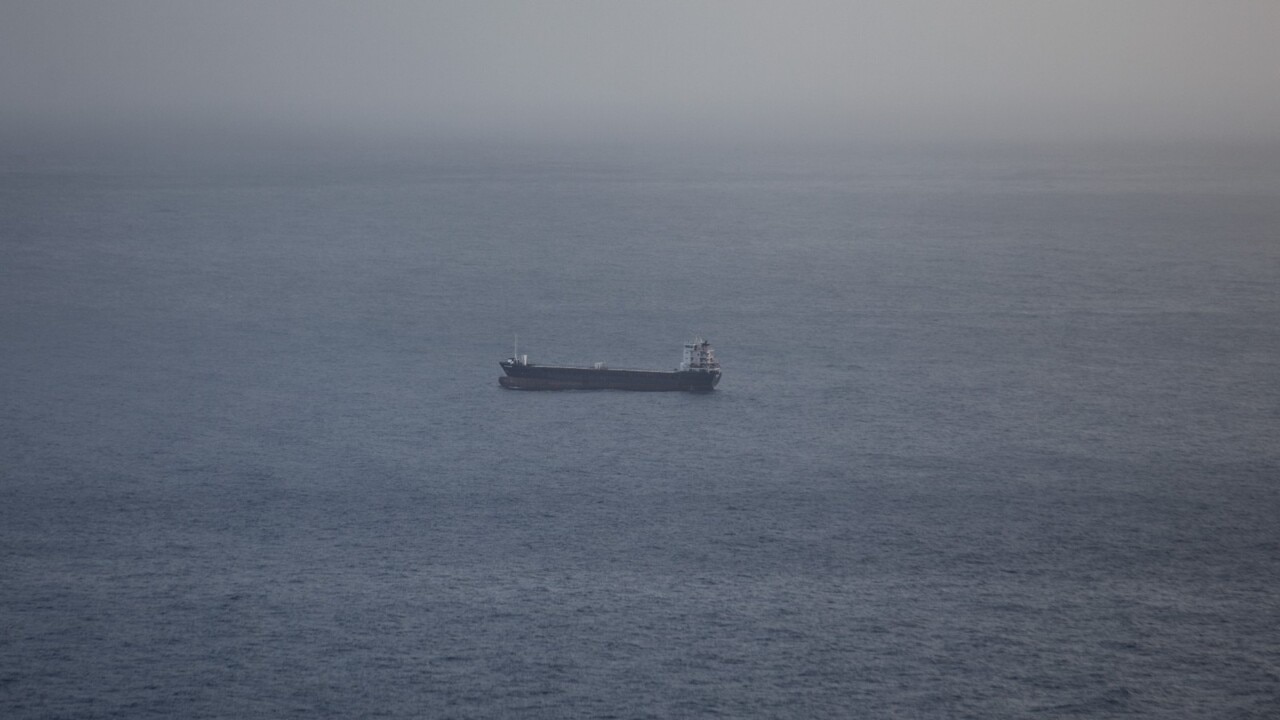
Former Defence Department deputy secretary Peter Jennings warned the Red Sea conflict was a “new front in Iran’s campaign for regional dominance”.
“The Americans are saying the Iranians have significantly sped up their refining of plutonium in order to give it a fast sprint to get a nuclear weapon. This (Houthi situation) is really a much bigger strategic play on Iran’s part,” Mr Jennings said.
He said Australia was “failing” to support its AUKUS partners who are helping the ADF “get nuclear propulsion” to elevate the country as a “more serious player” in the Indo-Pacific and globally.
Middle East export and former army officer Rodger Shanahan disagreed that Australia would be asked to do more: “We’ve given the diplomatic support and some staff support and we won’t be asked to do anything greater than that.”
Iran foreign ministry spokesman Nasser Kaanani said the “attacks are a clear violation of Yemen’s sovereignty and territorial integrity, and a breach of international laws … these attacks will only contribute to insecurity and instability in the region”.
Iran-backed Hezbollah, which has engaged in clashes with Israel in southern Lebanon, said “the American aggression confirms once again that the US is a full partner in the tragedies and massacres committed by the Zionist enemy in Gaza and the region”.
Saudi Arabia, which recently began peace talks with Houthi rebels, urged restraint.


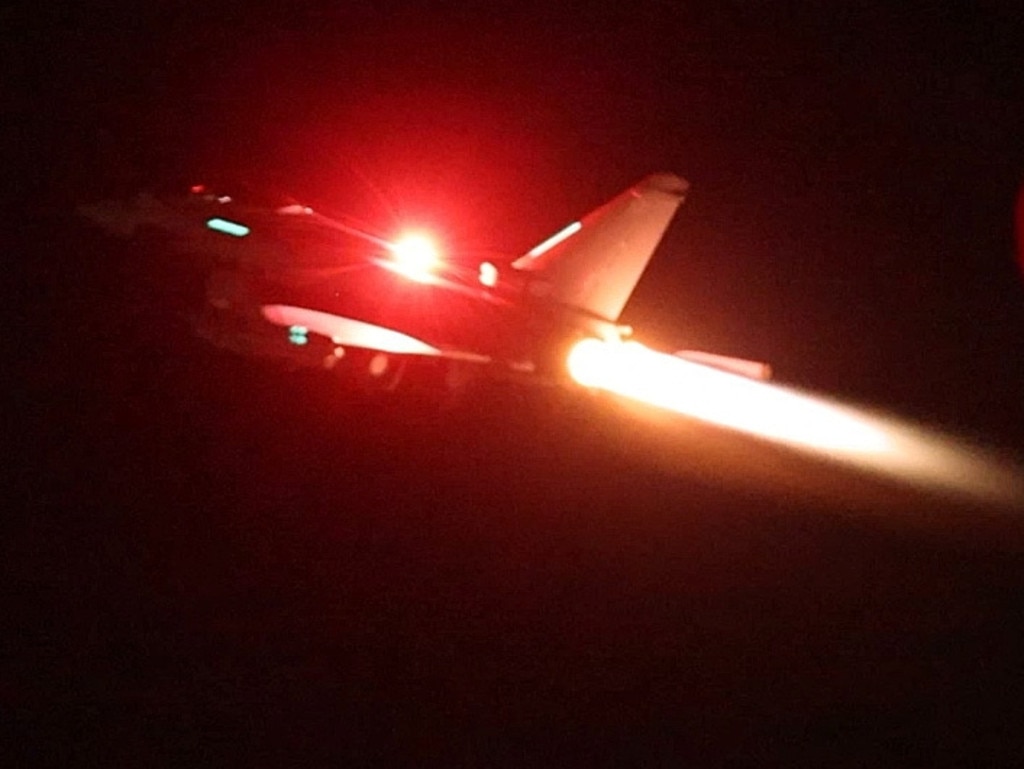


To join the conversation, please log in. Don't have an account? Register
Join the conversation, you are commenting as Logout